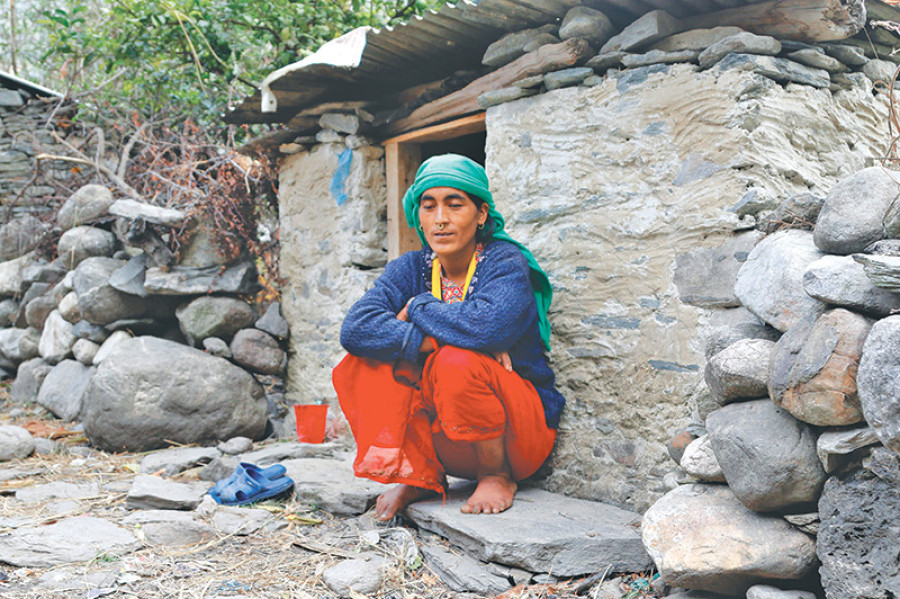National
Gender discriminatory practices not on parties’ vote agenda
A new law was enacted four months ago criminalising Chhaupadi, a practice that banishes women from home during menstruation and after childbirth.
Kamal Dev Bhattarai
A new law was enacted four months ago criminalising Chhaupadi, a practice that banishes women from home during menstruation and after childbirth.
It was a landmark move, with the law stipulating a three-month jail term or Rs 3,000 fine for anyone who forces women to follow the centuries-old custom that defined menstruating women as impure. The law was enacted more than a decade after the Supreme Court banned Chhaupadi.
Despite all this, the custom is still followed in Bajhang and other far-western districts, largely due to poor implementation of the law.
One of the concerns rights activists have long been expressing is whether women and girls who are forced to follow the custom would ever complain against their husbands, fathers or brothers, as on almost all occasions, the male members of the family believe the custom should be followed to avoid any bad omen befalling the family.
In remote villages of districts like Bajhang, many women and girls do not know about the new law that criminalises Chhaupadi and those who know say the practice will not stop until there is strict implementation of law.
Chhaupadi is one of the discriminatory customs in the far-western region, which forced women to sleep in a hut or a cowshed away from home during their periods.
The election fever is now growing in the region, but locals say they don’t think such issues will become political parties and their leaders’ priority, as they have never been in the past.
Ganga Bahadur Dhami, 55, a permanent resident of Jaya Prithvi Municipality-8, which is about one and a half kilometres from Chainpur, the district headquarters of Bajhang, minced no words when asked about Chhaupadi that discriminates women. “I know about the new law. Awareness campaigns calling to end the custom have also been run. But it impossible to stop this practice,” he said. “We are god fearing people. If we allow women to stay in the house during their period, it will invite bad omen and disease. Will law save us from diseases and illnesses? Only god will,” added Dhami, just as his 15-year-old daughter was forced to live in a cowshed near her house following the custom which has become illegal. She refused to talk.
Laxman Prasad Upadhyay, a teacher at Satyabadi Higher Secondary School in Chainpur, said neither Chhaupadi nor any other practices that discriminate against women are political parties’ agenda.
“Parties and their leaders can play an instrumental role in creating awareness,” said Upadhyay. “Compared to earlier days, we have seen some changes. Girls who used to skip classes during their period are now at least going to the school,” he added.
Reports by various social organisations show that about 99 percent women in the district still practise Chhaupadi.
A woman banished from during her menstruation had died in Bajhang two years ago. Many believe several other deaths while practising Chhaupadi often go unreported. There have also been reports of girls and women being subjected to sexual violence while forced to practise Chhaupadi.
Jagadish Rokaya, chairman of the Bajhang chapter of the Federation of Nepali Journalists, said such issues have never become election issues for political parties and their leaders. “When they talk to the media or non-government organisations, they never fall behind in making commitments to ending such discriminatory traditions. But at the grassroots level, they hardly raise these issues,” said Rokaya.




 9.7°C Kathmandu
9.7°C Kathmandu














